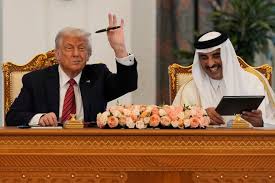
Breaking News
 The Roger Ver Lawfare Case You've Never Heard of and Why Trump Needs to End It
The Roger Ver Lawfare Case You've Never Heard of and Why Trump Needs to End It
 Deportations Have Only Just Begun! Border Czar Homan 'Building Teams' To Ramp Up Operations.
Deportations Have Only Just Begun! Border Czar Homan 'Building Teams' To Ramp Up Operations.
 VIDEO: Kevin O' Leary and Alex Jones Go Off on the 'War on Small Business' Slipped Withi
VIDEO: Kevin O' Leary and Alex Jones Go Off on the 'War on Small Business' Slipped Withi
 First Ever: USDOJ Files Terrorism Charges Against Sinaloa Cartel Members
First Ever: USDOJ Files Terrorism Charges Against Sinaloa Cartel Members
Top Tech News
 Cab-less truck glider leaps autonomously between road and rail
Cab-less truck glider leaps autonomously between road and rail
 Can Tesla DOJO Chips Pass Nvidia GPUs?
Can Tesla DOJO Chips Pass Nvidia GPUs?
 Iron-fortified lumber could be a greener alternative to steel beams
Iron-fortified lumber could be a greener alternative to steel beams
 One man, 856 venom hits, and the path to a universal snakebite cure
One man, 856 venom hits, and the path to a universal snakebite cure
 Dr. McCullough reveals cancer-fighting drug Big Pharma hopes you never hear about…
Dr. McCullough reveals cancer-fighting drug Big Pharma hopes you never hear about…
 EXCLUSIVE: Raytheon Whistleblower Who Exposed The Neutrino Earthquake Weapon In Antarctica...
EXCLUSIVE: Raytheon Whistleblower Who Exposed The Neutrino Earthquake Weapon In Antarctica...
 Doctors Say Injecting Gold Into Eyeballs Could Restore Lost Vision
Doctors Say Injecting Gold Into Eyeballs Could Restore Lost Vision
 Dark Matter: An 86-lb, 800-hp EV motor by Koenigsegg
Dark Matter: An 86-lb, 800-hp EV motor by Koenigsegg
 Spacetop puts a massive multi-window workspace in front of your eyes
Spacetop puts a massive multi-window workspace in front of your eyes
Trump bags Middle East deals, just not the two he wants and needs

US President Donald Trump's visit to Arab states in the Middle East this week generated plenty of multibillion-dollar deals. He said more than US$1 trillion worth of deals had been signed with Saudi Arabia alone, though the real total is likely much lower.
Qatar also placed an order for 210 Boeing aircraft, a deal worth a reported $96 billion. Trump will no doubt present these transactions as a major success for US industry.
The trip also helped counter concerns about US disengagement from the Middle East. For more than a decade, local elites have viewed Washington's attention as shifting away from the region.
This trip was a reaffirmation of the importance of the Middle East – in particular the Gulf region – to US foreign policy. This is an important signal to send to Middle Eastern leaders who are dealing with competing interests from China and, to a lesser extent, Russia.
And from a political standpoint, Trump's lifting of sanctions on Syria and meeting with the former rebel, now president, Ahmed al-Sharaa was very significant – both symbolically and practically.
Until recently, al-Sharaa was listed by the United States as a terrorist with a $10 million bounty on his head. However, when his forces removed dictator Bashar al-Assad from power in December, he was cautiously welcomed by many in the international community.
The US had invested considerable resources in removing Assad from power, so his fall was cause for celebration, even if it came at the hands of forces the US had deemed terrorists.
This rapid turnaround is dizzying. In practice, the removal of sanctions on Syria opens the doors to foreign investment in the reconstruction of the country following a long civil war. It also offers an opportunity for Saudi Arabia and Qatar, as well as Turkey, to expand their influence in Syria at the expense of Iran.
For a leader who styles himself a deal-maker, these can all be considered successful outcomes from a three-day trip.
However, Trump avoided wading into the far more delicate diplomatic and political negotiations needed to end Israel's war against Hamas in Gaza and find common ground with Iran on its nuclear program.
No solution in sight for the Palestinians
Trump skirted the ongoing tragedy in Gaza and offered no plans for a diplomatic solution to the war, which drags on with no end in sight.
The president did note his desire to see a normalization of relations between Arab states and Israel, without acknowledging the key stumbling block.
While Saudi Arabia and United Arab Emirates have no love for Hamas, the Gaza war and the misery inflicted on the Palestinians have made it impossible for them to overlook the issue. They cannot simply leapfrog Gaza to normalize relations with Israel.

 Node without Consent
Node without Consent

